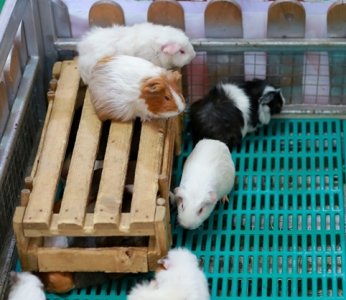Jake
Well-known member
- Oct 30, 2023
- 402
- 108
Boston currently has a ruling set in place, that pet stores are not able to sell dogs, cats, or rabbits unless they are in collaboration with local shelters and rescue organizations. The MSPCA and other animal welfare groups in Boston would like to include guinea pigs as protected animals under this same ordinance. This would be an expansion to the 2016 ordinance if accepted.
There is an overpopulation problem when it comes to guinea pigs, especially since a lot of the time guinea pigs are returned or dropped off at animal shelters. They would like to streamline the process of placing them in homes by making sure they are given to families that will care for them. I imagine a lot of this will be to promote spaying and neutering them as well. That might help a lot with overpopulation too.
More on this news can be found here - NBC Boston
There is an overpopulation problem when it comes to guinea pigs, especially since a lot of the time guinea pigs are returned or dropped off at animal shelters. They would like to streamline the process of placing them in homes by making sure they are given to families that will care for them. I imagine a lot of this will be to promote spaying and neutering them as well. That might help a lot with overpopulation too.
More on this news can be found here - NBC Boston
- Location
- Boston, Massachusetts, United States
